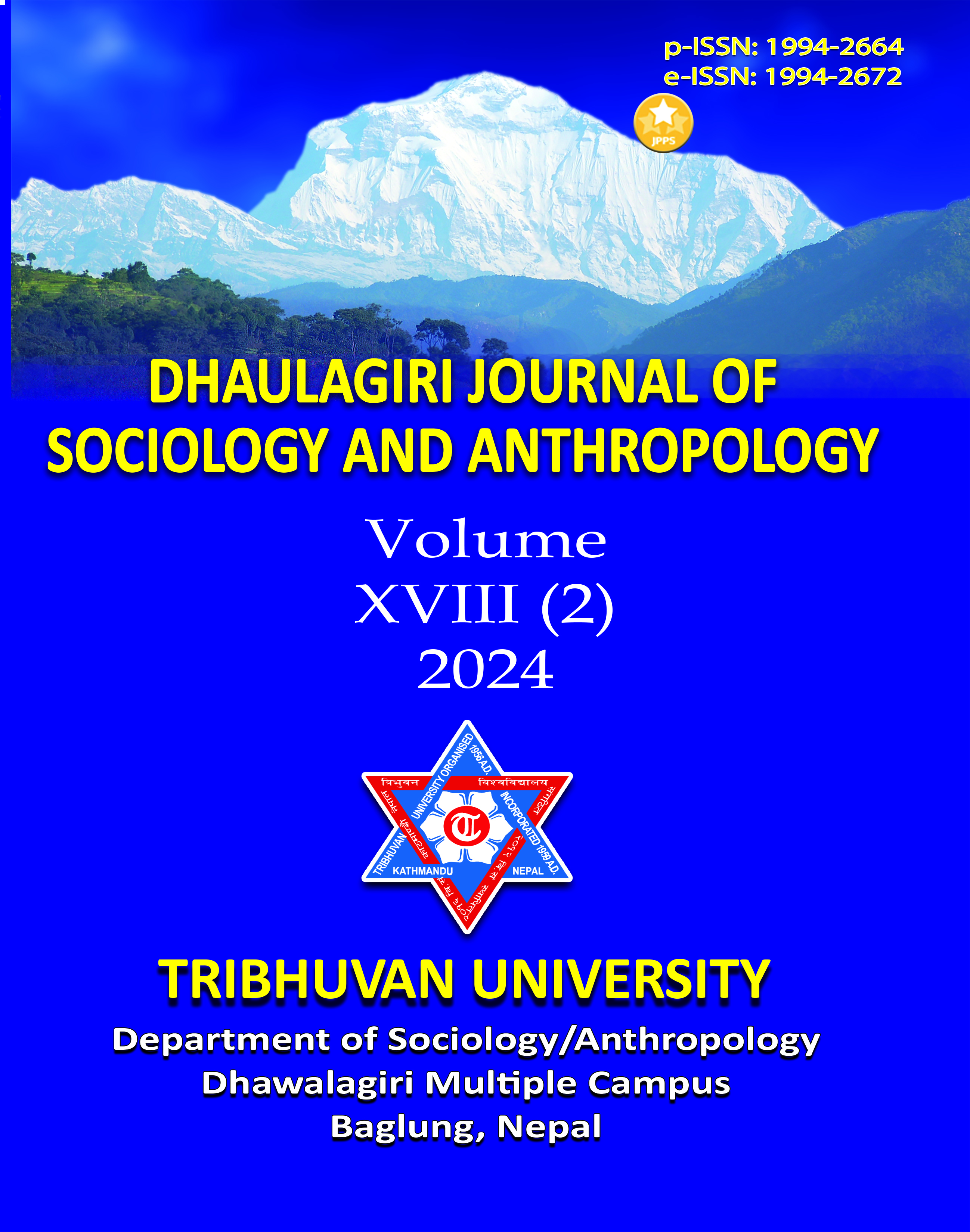Interrogation of Female Bread-Winning, Parenting and Childcare among Market Women in Ibadan Metropolis, Nigeria
DOI:
https://doi.org/10.3126/dsaj.v18i2.73287Keywords:
childcare, female breadwinners, market women, parenting, Ibadan MetropolisAbstract
The global rise in female breadwinning has led to changes within the family structure, especially in terms of household chores and childcare. In Nigeria, striking a balance between childcare and work career is a big difficulty for female bread winners, and also puts a strain on them. This study, therefore, investigated female breadwinning, parenting and childcare among market women in Ibadan, Nigeria. The study employed a cross-sectional research design. The Role strain theory guided the study. Study locations were the three major markets largely populated by women in the Ibadan metropolis. Both qualitative and quantitative methods were used to generate data from female breadwinners using a structured questionnaire administered to 903 respondents and ten in-depth interview methods. The study revealed that the male role in the family is gradually being taken over by women especially when such women are the breadwinners in the families. Also, the study indicated that children of female breadwinners among market women in the Ibadan metropolis spend more time with their mothers in the marketplace, regardless of whether the father is available or not. Despite this, younger children of the household rarely enjoy intimacy with their mothers as these breadwinners stay away from the home for more than ten hours daily. There was a statistically significant relationship between categories of women sampled in the markets and their relationship with children (x2 = 425.791, p<0.05), implying that there is a lower likelihood that female breadwinners would have cordial relationships with their children when compared to their non-breadwinning counterparts. Female breadwinners are encouraged to pay more attention to the cordial relationship with their children so as to protect the stability of their marriage and society.
Downloads
Downloads
Published
How to Cite
Issue
Section
License
Copyright (c) 2024 The Author(s)

This work is licensed under a Creative Commons Attribution-NonCommercial-ShareAlike 4.0 International License.




